Let me begin with these two quotes
advertisement
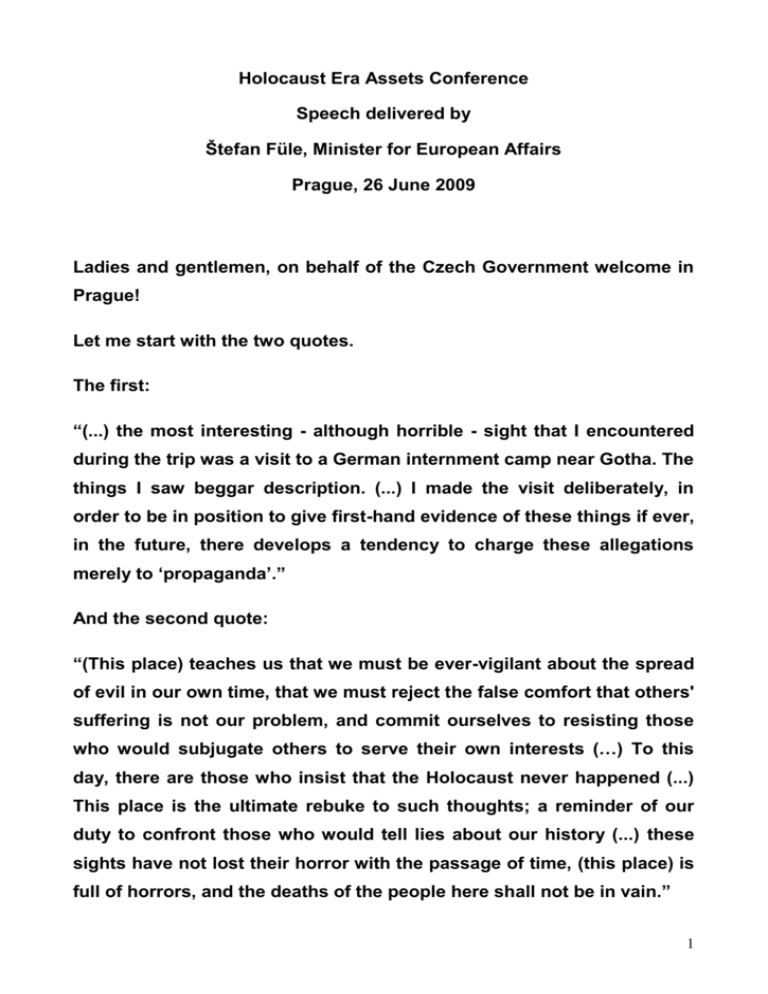
Holocaust Era Assets Conference Speech delivered by Štefan Füle, Minister for European Affairs Prague, 26 June 2009 Ladies and gentlemen, on behalf of the Czech Government welcome in Prague! Let me start with the two quotes. The first: “(...) the most interesting - although horrible - sight that I encountered during the trip was a visit to a German internment camp near Gotha. The things I saw beggar description. (...) I made the visit deliberately, in order to be in position to give first-hand evidence of these things if ever, in the future, there develops a tendency to charge these allegations merely to ‘propaganda’.” And the second quote: “(This place) teaches us that we must be ever-vigilant about the spread of evil in our own time, that we must reject the false comfort that others' suffering is not our problem, and commit ourselves to resisting those who would subjugate others to serve their own interests (…) To this day, there are those who insist that the Holocaust never happened (...) This place is the ultimate rebuke to such thoughts; a reminder of our duty to confront those who would tell lies about our history (...) these sights have not lost their horror with the passage of time, (this place) is full of horrors, and the deaths of the people here shall not be in vain.” 1 - Both quotes come from the same place, from the Nazi concentration camp in Buchenwald and its surroundings. - Both come from the American Presidents. The first is from Dwight Eisenhower, who was still a General of the American liberation army, when he mentioned it, in the first days after the liberation of the camp. The second was delivered by Barack Obama a couple of weeks ago, during the anniversary of that liberation. - Despite the fact that they are separated by 64 years, both quotes are immensely up to date. What happened during those 64 years? The world managed to divide into two irreconcilable camps and – 20 years ago – managed to reunite again. The former enemies are friends today, even allies. The formerly disputed territories, which were the subject of cruel conflict, are today peaceful territories with developed infrastructure, or sleepy villages where life goes along from day to day. But let’s also ask what did not happen during those 64 years. We meet here today precisely because of things that did not happen. We are here because of the injustices that are still to be rectified. Even though six million innocent people died in Shoah, there were a handful who managed to survive. What did those people live through in these 64 years? How were they accepted by the society of that time? What happened to their property, which they had to hand over or leave behind in their homes? No, we are not the first ones to ask. Many have done so before. And many have contributed to bringing progress to the historical quest for justice and reconciliation. This conference should however remind us that even 64 years after the WWII, Shoah should not be confined to 2 history books. The reason for that is that it concerns to this very day living people. For the Czech government, organizing this conference has a special meaning. First, the Czech Republic has harboured for centuries one of the most intellectually buoyant Jewish communities in Europe. Our cultural and historical heritage is inextricably linked with Czech Jews. And in Terezín, we eye-witnessed one of the darkest chapters of their history. At times when antisemitic moods re-surface in European societies, we see this conference as our contribution to countering these negative trends. Second, the Czech EU Presidency is an excellent opportunity for giving the topic of Holocaust Era Assets the floor and importance it deserves. To lend the outcomes of this conference legitimacy based on a genuine European consensus, on shared European values and history. To send out a clear message of commitment of the EU. Here I would like to thank the European Commission for joining us in this line of thinking, for its relentless support throughout the preparation of the conference and for its determination to promote this idea on the European level. Last but not least, we saw this event as an opportunity not only to follow up on the results of the Washington conference, which dealt mainly with property issues and injustices of the past. We want to add a new, future-oriented dimension to this process. We want to discuss new topics: Education on the past should prevent it from repeating. And Social welfare of elderly holocaust survivors is a chance to ensure life in dignity to those, that were deprived of it in the past. Supporting the Czech government´s initiative to establish a European Shoah Legacy 3 Institute in Terezín should be one of the outcomes of this conference. The institute should serve as a voluntary forum for promoting developments in the areas covered by the Conference. Ladies and gentlemen, four exciting days full of work ahead of us. I wish you fruitful discussions and I thank you for your attention. 4

![1 Speech at the Terezín`s the Fireflies premiere[*)] Jiří Brodský Mr](http://s3.studylib.net/store/data/007260632_1-158702a9a2ba83e830abd85de2695ce8-300x300.png)
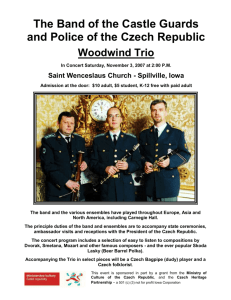
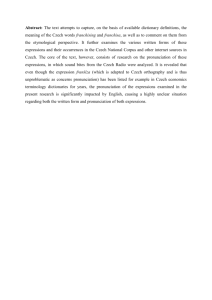
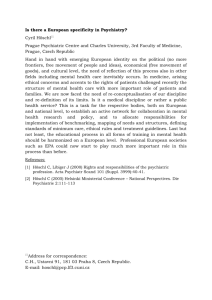
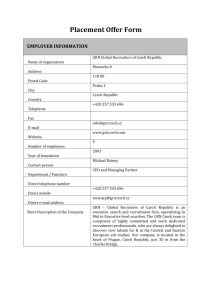
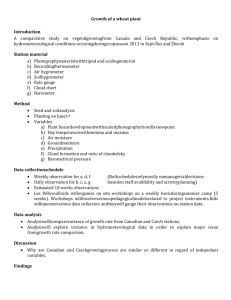
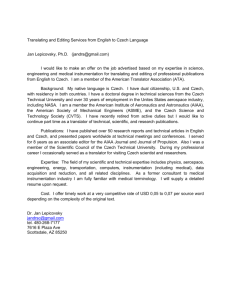
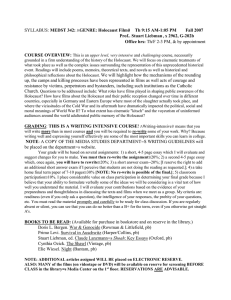
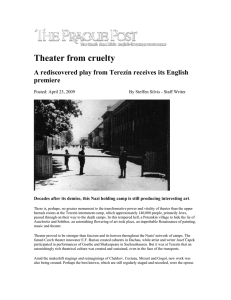
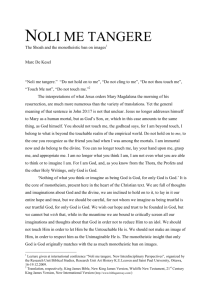
![This article was downloaded by: [University of Warwick] Publisher: Routledge](http://s2.studylib.net/store/data/012435293_1-2e6404c2a259d4f97c3a7f8eef70759b-300x300.png)